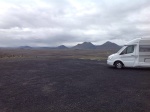surface site socket
+9
Cymro
daisy mae
brodco
artheytrate
Peter Brown
-mojo-
moggyminor1966
rogerblack
mikeyval
13 posters
The Auto-Sleeper Motorhome Owners Forum (ASOF) :: Auto-Sleeper Motorhome Forums :: Auto-Sleeper "Coachbuilt Motorhomes" Forum
Page 1 of 2
Page 1 of 2 • 1, 2 
 surface site socket
surface site socket
I am looking for a 240v socket to fit on outside wall at home to plug in motor home mains lead.
Looking for one that can be wired into the back of the socket (straight through the wall)- as opposed
To being wired into the top of the socket
Any ideas out there - and where from? Cheers
Looking for one that can be wired into the back of the socket (straight through the wall)- as opposed
To being wired into the top of the socket
Any ideas out there - and where from? Cheers
_________________
With age comes Wisdom


mikeyval- Member

-

Posts : 351
Joined : 2014-01-19
Member Age : 77
Location : Ellesmere Port Cheshire
Auto-Sleeper Model : Symbol
Vehicle Year : 2000
 Re: surface site socket
Re: surface site socket
Loads from Screwfix - most of these seem to have multiple gland entry positions and I'd be surprised if they didn't all allow for rear cable entry. You would have to ensure that the IP rating was maintained by either using an appropriate cable gland or else use appropriate sealant around the rear mounting plate entry
http://www.screwfix.com/c/electrical-lighting/outdoor-sockets/cat3360008
I assume you are up to date with the latest legal requirements regarding electrical work which needs to be installed and/or checked and certified by a qualified electrician to be Part P approved.
cheers
Roger
PS see here:
http://www.diydoctor.org.uk/projects/partp.htm
http://www.screwfix.com/c/electrical-lighting/outdoor-sockets/cat3360008
I assume you are up to date with the latest legal requirements regarding electrical work which needs to be installed and/or checked and certified by a qualified electrician to be Part P approved.
cheers
Roger
PS see here:
http://www.diydoctor.org.uk/projects/partp.htm
Last edited by rogerblack on Tue Nov 03, 2015 9:54 pm; edited 1 time in total (Reason for editing : PS with Part P link added)

rogerblack- Donator

-

Posts : 3207
Joined : 2012-09-22
Member Age : 69
Location : East Neuk, Fife / Berkshire
Auto-Sleeper Model : Pollensa/Boxer2.8HDi
Vehicle Year : 2002
 Re: surface site socket
Re: surface site socket
I fitted a Gewiss switched socket on the outside wall of my previous house and it was wired directly through the wall to the rear of the unit. I sealed round the outside with silicone but the whole unit is fully protected and when not in use the socket is protected by a screw on flap.mikeyval wrote:I am looking for a 240v socket to fit on outside wall at home to plug in motor home mains lead.
Looking for one that can be wired into the back of the socket (straight through the wall)- as opposed
To being wired into the top of the socket
Any ideas out there - and where from? Cheers
I bought it from eBay and this item is the same. eBay item no. 272010724771.
PS The switch on the unit cannot be switched on unless a socket is inserted.
Last edited by moggyminor1966 on Tue Nov 03, 2015 10:31 pm; edited 1 time in total

moggyminor1966- Member

-

Posts : 462
Joined : 2011-08-14
Member Age : 78
Location : Somerset
Auto-Sleeper Model : None
Vehicle Year : None
 Re: surface site socket
Re: surface site socket
As above, plus other suppliers you might want to consider are TLCdirect and QVSdirect - both of which have retail/trade outlets all over the country.
Note that, depending on who you speak to, the current electrical installation regs may not permit one of these sockets to be installed anywhere at a residential property. This is because the "flap" on the front is not considered to be an adequate shutter mechanism, meaning that live mains can be accessed through the socket.
A switch on its own is not considered adequate to cover that risk, but it may be acceptable to use a socket with an interlocked switch on it (which will not allow the outlet to be turned on without a plug inserted) - you may want to consult a qualified electrician on this. Note however that these are more bulky and they can cost a lot more than a standard unswitched socket.
And yes, I know, it seems ridiculous that the rules for a caravan site appear to be completely different (and more lax than this) but that's just the way things are now.
Note that, depending on who you speak to, the current electrical installation regs may not permit one of these sockets to be installed anywhere at a residential property. This is because the "flap" on the front is not considered to be an adequate shutter mechanism, meaning that live mains can be accessed through the socket.
A switch on its own is not considered adequate to cover that risk, but it may be acceptable to use a socket with an interlocked switch on it (which will not allow the outlet to be turned on without a plug inserted) - you may want to consult a qualified electrician on this. Note however that these are more bulky and they can cost a lot more than a standard unswitched socket.
And yes, I know, it seems ridiculous that the rules for a caravan site appear to be completely different (and more lax than this) but that's just the way things are now.

-mojo-- Member

-

Posts : 4566
Joined : 2012-08-04
Member Age : 24
Location : Southeast
Auto-Sleeper Model : Trooper
Vehicle Year : 2006
 Re: surface site socket
Re: surface site socket
Thanks for all the advice.
It would appear to be easier and cheaper to go and buy a standard outdoor garden socket and continue using the 13amp fly lead - given the amount of regulation / advice / warnings concerning use and fitting of the former
Cheers --- end of that one
It would appear to be easier and cheaper to go and buy a standard outdoor garden socket and continue using the 13amp fly lead - given the amount of regulation / advice / warnings concerning use and fitting of the former
Cheers --- end of that one

_________________
With age comes Wisdom


mikeyval- Member

-

Posts : 351
Joined : 2014-01-19
Member Age : 77
Location : Ellesmere Port Cheshire
Auto-Sleeper Model : Symbol
Vehicle Year : 2000
 Re: surface site socket
Re: surface site socket
I made a new 'fly lead'. The van end is a commando socket fixed to the outer wall with a flex going out of the back through the wall. The flex is then clipped to the surface (inside garage) to the proximity of a 13A socket. The flex is terminated with a 13A plug. The plug is inserted into the socket when the 'fly lead' is required to connect to the van.
_________________
Peter #1

Peter Brown- Donator

-

Posts : 10617
Joined : 2012-11-10
Member Age : 72
Location : Staffs
Auto-Sleeper Model : Broadway EB
Vehicle Year : 2016
 Re: surface site socket
Re: surface site socket
Apologies if I misunderstood your original post. If you are looking to plug the motorhome's hook-up lead straight into a mating connector, then this might suit if you want rear entry:
http://www.screwfix.com/p/abb-panel-socket-16a-2p-e-250v-6h-ip44/6890f#product_additional_details_container
Although personally I would use one like this:
http://www.screwfix.com/p/abb-surface-socket-16a-2p-e-250v-6h-ip44/1858f#product_additional_details_container
even though the cable entry is visible, with a sealed gland it won't leak. The unit may actually also have a rear entry knock-out, unfortunately the specification is a bit scant, however if you have a local branch of Screwfix I'm sure they'd let you have a look at one, I've always found them very helpful. Or you could try asking them on-line. Having the terminal socket facing downwards makes more sense to me when exposed to the elements.
Peter's suggestion of utilising an existing internal 13A socket and a 13A plug to connect to the outside socket makes excellent sense and would probably get around any of the Part P requirements. Whatever the regulations may say, from a risk assessment viewpoint I would suggest this is a much safer option than a trailing lead set-up.

cheers
Roger
http://www.screwfix.com/p/abb-panel-socket-16a-2p-e-250v-6h-ip44/6890f#product_additional_details_container
Although personally I would use one like this:
http://www.screwfix.com/p/abb-surface-socket-16a-2p-e-250v-6h-ip44/1858f#product_additional_details_container
even though the cable entry is visible, with a sealed gland it won't leak. The unit may actually also have a rear entry knock-out, unfortunately the specification is a bit scant, however if you have a local branch of Screwfix I'm sure they'd let you have a look at one, I've always found them very helpful. Or you could try asking them on-line. Having the terminal socket facing downwards makes more sense to me when exposed to the elements.
Peter's suggestion of utilising an existing internal 13A socket and a 13A plug to connect to the outside socket makes excellent sense and would probably get around any of the Part P requirements. Whatever the regulations may say, from a risk assessment viewpoint I would suggest this is a much safer option than a trailing lead set-up.

cheers
Roger
_________________

cheers
Roger

rogerblack- Donator

-

Posts : 3207
Joined : 2012-09-22
Member Age : 69
Location : East Neuk, Fife / Berkshire
Auto-Sleeper Model : Pollensa/Boxer2.8HDi
Vehicle Year : 2002
 Re: surface site socket
Re: surface site socket
I did the same as Peter.
John.
John.

artheytrate- Member

-

Posts : 705
Joined : 2014-01-19
Member Age : 74
Location : Stoke on Trent or Benidorm
Auto-Sleeper Model : None
Vehicle Year : 2017

Peter Brown- Donator

-

Posts : 10617
Joined : 2012-11-10
Member Age : 72
Location : Staffs
Auto-Sleeper Model : Broadway EB
Vehicle Year : 2016
 Re: surface site socket
Re: surface site socket
Hi 
Funny how a simple question can lead to a minefield isn’t it.
I agree but I don’t think it gets you out of Part P. As far as I’m aware it covers all outside electrical work (although sockets aren’t specifically mentioned).
Section 2.2 is probably most relavent. Chapter and verse here:
www.planningportal.gov.uk/uploads/br/BR_PDF_AD_P_2013.pdf
Caravan sites have their own specific section in the wiring regs. I don’t know that they are necessarily more lax but I take your point about the shuttered sockets. This thread prompted me to re-read the regs and there is an implication that I hadn’t twigged until now.
We may not be allowed to connect the van to the domestic supply at all!
It depends on whether the property has a “PME” earthing system. Of course many people won’t know what type of earthing they have and would need an electrician to advise.
Here is a quote directly from BS7671 (The IET wiring regs 17th edition):
Regulation 708.411.3.6
“The Electricity Safety, Quality and Continuity Regulations 2002 (ESQCR) prohibit the connection of a PME earthing facility to any metalwork in a leisure accommodation vehicle (including a caravan)”.
That means that if we have a PME earthing system, as many modern houses have, we should not connect the van to the domestic supply (even via any form of adaptor)!
The rights and wrongs of that regulation (and the fact that a few of us break it) are debatable but the reason behind it is that there is a possible (if unlikely) safety issue that could arise.
are debatable but the reason behind it is that there is a possible (if unlikely) safety issue that could arise.
http://electrical.theiet.org/wiring-matters/45/pme.cfm?type=pdf
Brod

Funny how a simple question can lead to a minefield isn’t it.
rogerblack wrote:Peter's suggestion of utilising an existing internal 13A socket and a 13A plug to connect to the outside socket makes excellent sense and would probably get around any of the Part P requirements. Whatever the regulations may say, from a risk assessment viewpoint I would suggest this is a much safer option than a trailing lead set-up.
I agree but I don’t think it gets you out of Part P. As far as I’m aware it covers all outside electrical work (although sockets aren’t specifically mentioned).
Section 2.2 is probably most relavent. Chapter and verse here:
www.planningportal.gov.uk/uploads/br/BR_PDF_AD_P_2013.pdf
-mojo- wrote:And yes, I know, it seems ridiculous that the rules for a caravan site appear to be completely different (and more lax than this) but that's just the way things are now.
Caravan sites have their own specific section in the wiring regs. I don’t know that they are necessarily more lax but I take your point about the shuttered sockets. This thread prompted me to re-read the regs and there is an implication that I hadn’t twigged until now.
We may not be allowed to connect the van to the domestic supply at all!

It depends on whether the property has a “PME” earthing system. Of course many people won’t know what type of earthing they have and would need an electrician to advise.
Here is a quote directly from BS7671 (The IET wiring regs 17th edition):
Regulation 708.411.3.6
“The Electricity Safety, Quality and Continuity Regulations 2002 (ESQCR) prohibit the connection of a PME earthing facility to any metalwork in a leisure accommodation vehicle (including a caravan)”.
That means that if we have a PME earthing system, as many modern houses have, we should not connect the van to the domestic supply (even via any form of adaptor)!
The rights and wrongs of that regulation (and the fact that a few of us break it)
 are debatable but the reason behind it is that there is a possible (if unlikely) safety issue that could arise.
are debatable but the reason behind it is that there is a possible (if unlikely) safety issue that could arise.http://electrical.theiet.org/wiring-matters/45/pme.cfm?type=pdf
Brod

brodco- Donator

-

Posts : 1255
Joined : 2012-07-30
Member Age : 69
Location : Worthing
Auto-Sleeper Model : Duetto
Vehicle Year : 1997
 Re: surface site socket
Re: surface site socket
We have 2 x 13amp sockets just inside the garage they both have the caravan motorhome connection permantely plugged in and then the long EHU cables are connected to that, one to caravan and one to MH, also have an outside socket at the back on kitchen wall for lawnmower this has a flap but no switch, has been there for years.
I would have thought Screwfix a good place to go to.
I would have thought Screwfix a good place to go to.

daisy mae- Donator

-

Posts : 6188
Joined : 2013-02-03
Location : North Norfolk
Auto-Sleeper Model : Hampshire Topaz
Vehicle Year : 2008 98
 Re: surface site socket
Re: surface site socket
Oh for the good old days - a bundle of copper earth rods, tips, caps, connectors, generator, kango hammer and an earth resistivity tester trying to establish a 1ohm earth! When investigating the foundations of my last house (built in 1952 - a good year) for the home office (village police station) I found the local earth - 6" nail with copper wire wrapped round it.brodco wrote:That means that if we have a PME earthing system, as many modern houses have, we should not connect the van to the domestic supply (even via any form of adaptor)!
Good news from your pdf: "It is important to note that no tragedies have occurred in the UK due to the loss of the PEN conductor"
_________________
Peter #1

Peter Brown- Donator

-

Posts : 10617
Joined : 2012-11-10
Member Age : 72
Location : Staffs
Auto-Sleeper Model : Broadway EB
Vehicle Year : 2016
 surface site socket
surface site socket
Thanks everyone for the replies and advice and purchase suggestions.
I am going to purchase the second socket (screwfix) as put forward by Roger.
It was this type I had in mind when I put the post out.
It provoked a good debate anyway.
Cheers Mike
I am going to purchase the second socket (screwfix) as put forward by Roger.
It was this type I had in mind when I put the post out.
It provoked a good debate anyway.
Cheers Mike
_________________
With age comes Wisdom


mikeyval- Member

-

Posts : 351
Joined : 2014-01-19
Member Age : 77
Location : Ellesmere Port Cheshire
Auto-Sleeper Model : Symbol
Vehicle Year : 2000
 Re: surface site socket
Re: surface site socket
Hi 
Personally I think electrical practice took a set back with the demise of "fag packets" and the reduced availability of silver foil for wrapping around fuses! - (joke just in case anyone wondered).
Brod

Peter Brown wrote:When investigating the foundations of my last house (built in 1952 - a good year) for the home office (village police station) I found the local earth - 6" nail with copper wire wrapped round it.
Personally I think electrical practice took a set back with the demise of "fag packets" and the reduced availability of silver foil for wrapping around fuses! - (joke just in case anyone wondered).

Doesn't that tell us something?Peter Brown wrote:Good news from your pdf: "It is important to note that no tragedies have occurred in the UK due to the loss of the PEN conductor"
Brod

brodco- Donator

-

Posts : 1255
Joined : 2012-07-30
Member Age : 69
Location : Worthing
Auto-Sleeper Model : Duetto
Vehicle Year : 1997
 Re: surface site socket
Re: surface site socket
brodco wrote:
The rights and wrongs of that regulation (and the fact that a few of us break it)are debatable but the reason behind it is that there is a possible (if unlikely) safety issue that could arise.
http://electrical.theiet.org/wiring-matters/45/pme.cfm?type=pdf
That article is interesting (if a bit on the tough side to decipher) because it reminds me of someone on the VWT4Forum a few months ago complaining that they were regularly getting electrical shocks from the metalwork of their van while parked and hooked up at campsites in France.
Although it wasn't dismissed as an electrical installation problem, a lot of the responses (including mine, I should add) were along the lines of "are you sure it wasn't just static electricity?". Looks like this would be a possible cause (but fortunately pointing to a fault external to his motorhome if I read the article correctly - so, by luck rather than good judgement, not a long-term safety issue for the person complaining).

-mojo-- Member

-

Posts : 4566
Joined : 2012-08-04
Member Age : 24
Location : Southeast
Auto-Sleeper Model : Trooper
Vehicle Year : 2006
 Re: surface site socket
Re: surface site socket
For those of us who have little knowledge of electrics, this thread is becoming sinister. OK - I just about understand reverse polarity, and how to cope with it. But now it seems that if my house has a PME earthing system (and I interject that I really didn't understand even the Wiki definition) I mustn't connect my motorhome to it - whilst (bafflingly) it's apparently OK to connect it to any commercial site's hook-up.
I appreciate that all this is goverened by regulations. But for the ordinary Dai, it's totally confusing: presumably, if my home has PME earthing, I can happily connect all sorts of domestic equipment to my mains as normal - but not my motorhome? But if I drive it to a camp site, it'll be OK?
Sorry chaps / ladies but you've lost me on this. I'm not going to call in an electrician to examine my earthing system: for the last 27 years I've connected an Autosleeper to the outside socket when parked outside the house. And I propose to continue so to do.
I was going to conclude by typing "R.I.P." but maybe that's tempting fate!
Cymro
I appreciate that all this is goverened by regulations. But for the ordinary Dai, it's totally confusing: presumably, if my home has PME earthing, I can happily connect all sorts of domestic equipment to my mains as normal - but not my motorhome? But if I drive it to a camp site, it'll be OK?
Sorry chaps / ladies but you've lost me on this. I'm not going to call in an electrician to examine my earthing system: for the last 27 years I've connected an Autosleeper to the outside socket when parked outside the house. And I propose to continue so to do.
I was going to conclude by typing "R.I.P." but maybe that's tempting fate!
Cymro

Cymro- Donator

-

Posts : 3691
Joined : 2011-06-05
Location : Caerdydd - Cardiff
Auto-Sleeper Model : Nuevo ES
Vehicle Year : 2015
 Re: surface site socket
Re: surface site socket
I hope I'm not tempting fate by saying this, but I think the article is pretty much in the realms of worst-case theory - a combination of a rare fault and an unlikely situation or two.
In my experience there are other similar conditions which appear at face value to be worrying, but when looked at in detail seem to require a combination of very unlikely things. The example I'm thinking of is the (supposed) need for double-pole MCBs in the power distribution unit in a motorhome. This is something that a lot of older vans don't have, and it is possible to come up with a set of circumstances (involving reverse polarity) where that could represent a danger. But that combination of circumstances has always seemed incredibly unlikely to me...
My own personal view is that if it really were a significant danger we would be seeing people keeling over and dying from electrocution at campsites on a regular basis and - unless there is some conspiracy to keep it secret - we don't seem to be seeing that...
In my experience there are other similar conditions which appear at face value to be worrying, but when looked at in detail seem to require a combination of very unlikely things. The example I'm thinking of is the (supposed) need for double-pole MCBs in the power distribution unit in a motorhome. This is something that a lot of older vans don't have, and it is possible to come up with a set of circumstances (involving reverse polarity) where that could represent a danger. But that combination of circumstances has always seemed incredibly unlikely to me...
My own personal view is that if it really were a significant danger we would be seeing people keeling over and dying from electrocution at campsites on a regular basis and - unless there is some conspiracy to keep it secret - we don't seem to be seeing that...

-mojo-- Member

-

Posts : 4566
Joined : 2012-08-04
Member Age : 24
Location : Southeast
Auto-Sleeper Model : Trooper
Vehicle Year : 2006
 Re: surface site socket
Re: surface site socket
I could (and have in the past) write volumes on the subjects of earthing, bonding, immunisation and electrical safety however in a nutshell; over the years I've had a few electric shocks (one very bad) and now have heart disease. If I had the slightest concern that plugging the motorhome into the house electrics was risky, I wouldn't do it - but I do all the time.
_________________
Peter #1

Peter Brown- Donator

-

Posts : 10617
Joined : 2012-11-10
Member Age : 72
Location : Staffs
Auto-Sleeper Model : Broadway EB
Vehicle Year : 2016
 Re: surface site socket
Re: surface site socket
Just to add to the comments.
PME (Protective Multiple Earthing is used in many domestic properties but not all. It is also now known as TNC-S. In a nutshell this uses the neutral conductor of the main incoming supply as an earth but must be configured by the electrical supplier (Not a local electrician)
Many properties and the majority of campsites use a TT system which is where the earth is connected through the general mass of the earth and at each hook up point on a touring site you will probably see an earth wire connected to a rod (earth electrode) driven into the ground. The fault current finds its way back to the supply transformer through the mass of the earth. There is another earthing system, TNS where the sheath of the cable is used as the earth conductor and is used extensively. It is not generally used on campsites for technical reasons although not precluded under certain circumstances. All the above are to do with the Earth Fault Loop Impedance which must be of a suitable value to enable the earth fault current to flow and the protective device to operate within a certain time scale in the case of a fault. (Milli seconds) and thus ensure the automatic disconnection of supply.
You would almost certainly need an electrician to know which system you have in your house or enquire of the supply company. Its not always obvious when looking at the incoming supply to the property. (To confuse even more earth wires in the above references should now properly be referred to as protective conductors.)
The Electricity Safety, Quality and Continuity Regulations prohibit distributors from connecting a PME (TNC-S) network to any metalwork in a caravan (or boat). The wiring regulations , BS7671 also prohibits any connection between a PME earthing terminal and a caravan pitch socket outlet conductors.
here endeth the first lesson which is far more complicated than as referred to above.
Nite nite everybody. ! !
PME (Protective Multiple Earthing is used in many domestic properties but not all. It is also now known as TNC-S. In a nutshell this uses the neutral conductor of the main incoming supply as an earth but must be configured by the electrical supplier (Not a local electrician)
Many properties and the majority of campsites use a TT system which is where the earth is connected through the general mass of the earth and at each hook up point on a touring site you will probably see an earth wire connected to a rod (earth electrode) driven into the ground. The fault current finds its way back to the supply transformer through the mass of the earth. There is another earthing system, TNS where the sheath of the cable is used as the earth conductor and is used extensively. It is not generally used on campsites for technical reasons although not precluded under certain circumstances. All the above are to do with the Earth Fault Loop Impedance which must be of a suitable value to enable the earth fault current to flow and the protective device to operate within a certain time scale in the case of a fault. (Milli seconds) and thus ensure the automatic disconnection of supply.
You would almost certainly need an electrician to know which system you have in your house or enquire of the supply company. Its not always obvious when looking at the incoming supply to the property. (To confuse even more earth wires in the above references should now properly be referred to as protective conductors.)
The Electricity Safety, Quality and Continuity Regulations prohibit distributors from connecting a PME (TNC-S) network to any metalwork in a caravan (or boat). The wiring regulations , BS7671 also prohibits any connection between a PME earthing terminal and a caravan pitch socket outlet conductors.
here endeth the first lesson which is far more complicated than as referred to above.
Nite nite everybody. ! !

chudders- Member

-

Posts : 84
Joined : 2015-05-24
Member Age : 75
Location : cornwall
Auto-Sleeper Model : Cotswold FB
Vehicle Year : Vehicle
 Re: surface site socket
Re: surface site socket
My Husband asked the electrician who is working on our memorial Hall this morning, it is as he thought, we used to have overhead electric cables, we are on a country lane and was the only house, decades later more houses were built and the electric cables were put under ground, so it is the old houses with overhead cables that may be the reason,that is why we have an earth wire coming out of the garage and attached to an outside water tap. underground cables wouldn`t have this, remember when the earth was attached to the under sink water pipe, until the powers that be realised water pipes in new houses are plastic.
PS Our cables are also underground now.
PS Our cables are also underground now.
Last edited by daisy mae on Thu Nov 05, 2015 4:29 pm; edited 1 time in total (Reason for editing : PS)

daisy mae- Donator

-

Posts : 6188
Joined : 2013-02-03
Location : North Norfolk
Auto-Sleeper Model : Hampshire Topaz
Vehicle Year : 2008 98
 Re: surface site socket
Re: surface site socket
I appreciate Chudders's kind effort to write at length. But as to the practical question "what should I do?" I'm reminded of what Mr Churchill said. When the war was at its worst for Britain, and another setback had been reported, a reporter asked Churchill how he proposed to conduct the rest of the war. He replied "Keep B*ggering On".
So will I with my hook-up!
So will I with my hook-up!

Cymro- Donator

-

Posts : 3691
Joined : 2011-06-05
Location : Caerdydd - Cardiff
Auto-Sleeper Model : Nuevo ES
Vehicle Year : 2015
 Re: surface site socket
Re: surface site socket
Indeed yes, many older properties did rely on the incoming main earth being provided by water pipes, (or even gas pipes on occasions)daisy mae wrote:My Husband asked the electrician who is working on our memorial Hall this morning, it is as he thought, we used to have overhead electric cables, we are on a country lane and was the only house, decades later more houses were built and the electric cables were put under ground, so it is the old houses with overhead cables that may be the reason,that is why we have an earth wire coming out of the garage and attached to an outside water tap. underground cables wouldn`t have this, remember when the earth was attached to the under sink water pipe, until the powers that be realised water pipes in new houses are plastic.
PS Our cables are also underground now.
This is as you know no longer acceptable and main earthing has been converted to a more acceptable method.
The confusion arises because earth wires will be seen to be attached to water pipes and incoming gas supplies but that is called bonding and serves a completely different purpose.

chudders- Member

-

Posts : 84
Joined : 2015-05-24
Member Age : 75
Location : cornwall
Auto-Sleeper Model : Cotswold FB
Vehicle Year : Vehicle
 Re: surface site socket
Re: surface site socket
chudders, I have a house built 1975, with underground cables (no access manholes in the street either), no cableing mods have been carried out since then. I am I right that it is unlikely that my supply is PME?
_________________
Peter L

PLOUGHLIN- Donator

-

Posts : 4889
Joined : 2014-06-24
Member Age : 54
Location : NORTH HERTS
Auto-Sleeper Model : MB Gloucester
Vehicle Year : 2011
 Re: surface site socket
Re: surface site socket
PLOUGHLIN wrote:chudders, I have a house built 1975, with underground cables (no access manholes in the street either), no cableing mods have been carried out since then. I am I right that it is unlikely that my supply is PME?
It would be inappropriate to speculate. The only way to be certain how your installation is configured is inspection/testing by a qualified electrician.
_________________
Peter #1

Peter Brown- Donator

-

Posts : 10617
Joined : 2012-11-10
Member Age : 72
Location : Staffs
Auto-Sleeper Model : Broadway EB
Vehicle Year : 2016
 Re: surface site socket
Re: surface site socket
Cymro wrote:I appreciate Chudders's kind effort to write at length. But as to the practical question "what should I do?" I'm reminded of what Mr Churchill said. When the war was at its worst for Britain, and another setback had been reported, a reporter asked Churchill how he proposed to conduct the rest of the war. He replied "Keep B*ggering On".
So will I with my hook-up!
Rock and Roll and so will I

_________________
We are not here long so do it while you can


Jaytee- Donator

-

Posts : 3116
Joined : 2013-11-08
Member Age : 76
Location : Nr Filey North Yorkshire
Auto-Sleeper Model : Winchcombe
Vehicle Year : 2013
Page 1 of 2 • 1, 2 
 Similar topics
Similar topics» New Bourton - roof surface 'undulating
» Broadway FB Kitchen surface ext.
» Repairs to Monocoque surface
» shelf help for Harmony
» Surface of moon or Yorkshire potholes
» Broadway FB Kitchen surface ext.
» Repairs to Monocoque surface
» shelf help for Harmony
» Surface of moon or Yorkshire potholes
The Auto-Sleeper Motorhome Owners Forum (ASOF) :: Auto-Sleeper Motorhome Forums :: Auto-Sleeper "Coachbuilt Motorhomes" Forum
Page 1 of 2
Permissions in this forum:
You cannot reply to topics in this forum
